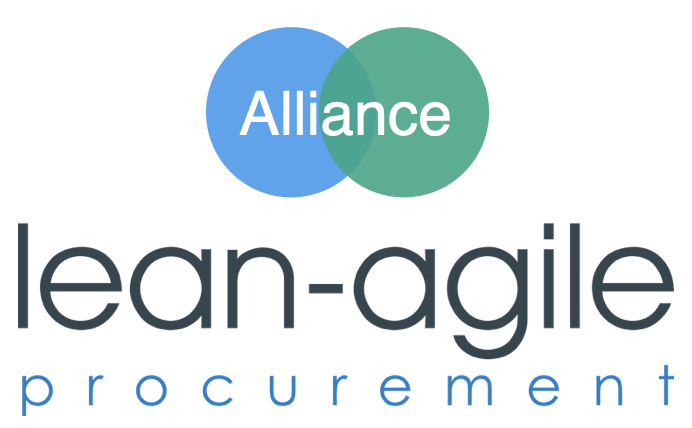
Contract Types
Outcome-based with Profit-sharing
Outcome-based Contract with Profit-sharing
Characteristics
Category
Iron Triangle
In an Outcome-based contract, the scope is defined at a high level by outlining business objectives or outcomes, allowing flexibility in how these are accomplished. While the time and quality standards are predefined, the cost ceiling is variable and does not necessarily have to be fully utilized, providing an opportunity for a gain- or profit-sharing if the targets are met efficiently.
Agile Contract?
Yes, an Outcome-based Contract with Profit-Sharing can be considered an Agile contract because it offers flexibility in achieving the desired outcomes and current costs. New ideas from either party can be integrated during the delivery process without the need for formal change requests. It also recognizes the vendor's contribution by allowing them to share in the success.
An Outcome-based Contract with Profit-sharing is similar to a Target Price Contract, but instead of defining the scope output-based, it defines specific outcomes or impacts. This contract type is suited for relational relationships and focuses on achieving set outcomes without specifying the exact methods, solutions, services, or products to be used. It allows flexibility in how the outcomes are met, encouraging innovation and adaptability. In return to offer his services at costs the vendor is participating on success e.g. via a profit-sharing.
Buyers Perspective
Example
An example of an Outcome-based Contract with Profit-sharing could involve a renewable energy company committing to reduce a client's energy consumption by 20% over two years. The contract outlines this specific outcome but grants the company flexibility in determining how to achieve it. The vendor shares in the joint success through mechanisms such as profit-sharing, bonuses, or similar incentives, rewarding their contribution to achieving the energy savings.
Also known as
Performance-based Profit Sharing Contract, Results-sharing Agreement, Success Fee Contract, Revenue-sharing Contract, Gain-sharing Agreement, Incentive-based Partnership Contract, Shared Outcome Agreement, Value-sharing Contract
Vendors Perspective
From the vendor's perspective, Outcome-based Contracts with Profit Sharing provide an opportunity to share in the financial rewards of a project's success, aligning their interests with the buyer's goals. This arrangement incentivizes the vendor to deliver high-quality outcomes efficiently, as their compensation is directly tied to the value they create, potentially leading to greater profits if they exceed expectations. However, it also involves taking on more risk, as payment depends on achieving the specified results.
From the buyer's perspective, Outcome-based Contracts with Profit Sharing align the vendor's incentives with the buyer's objectives, ensuring that the vendor is motivated to achieve the desired results. As the vendors services are at costs offers this arrangement a shared risk-reward model, where the buyer benefits from the vendor's commitment to success while also potentially reducing upfront costs, as payments are tied to actual performance and outcomes.
Optimal if
An Outcome-based Contract with Profit Sharing is optimal when both parties seek to align their interests around achieving specific, measurable outcomes, allowing the vendor to share in the financial success of the project. This contract type is particularly effective when the buyer wants to incentivize high performance and innovation, while also sharing the risk and reward of the project's results with the vendor.
Challenges
Complexity in Measuring Outcomes: Accurately defining and measuring the outcomes that trigger profit-sharing can be complex, potentially leading to disputes.
Risk of Unmet Expectations: Vendors assume a higher risk, as their compensation is tied to achieving specific outcomes, which may be influenced by factors beyond their control.
Alignment of Metrics: Ensuring that the metrics used for profit-sharing align with both the buyer's business objectives and the vendor's capabilities can be challenging.
Cash Flow Uncertainty: Vendors may face cash flow issues, as payments depend on the timing and achievement of outcomes, which can be unpredictable.
Incentive Misalignment: There is a risk that the profit-sharing incentives may lead vendors to focus excessively on specific metrics at the expense of broader project quality or long-term objectives.
Negotiation Complexity: Negotiating the terms of profit-sharing arrangements can be complex and time-consuming, requiring clear definitions and agreements on how profits will be calculated and shared.
Longer Contractual Commitments: These contracts often require longer-term commitments to realize shared success, which can lock both parties into the agreement and reduce flexibility.
Impact of External Factors: External factors such as market conditions, regulatory changes, or unforeseen events can impact the achievement of outcomes and, consequently, the profit-sharing arrangement.
Advantages
Aligned Incentives: Both parties share a common goal, as the vendor's compensation is directly tied to the achievement of specific outcomes, ensuring a strong alignment of interests.
Enhanced Collaboration: The shared success model fosters a collaborative partnership, encouraging open communication and joint problem-solving to achieve the desired results.
Risk Sharing: The buyer shares some of the financial risks with the vendor, as payments are contingent on the successful attainment of outcomes.
Increased Motivation: Vendors are incentivized to perform at their best, as exceeding the agreed-upon outcomes can lead to higher rewards through profit-sharing.
Flexibility in Execution: Vendors have the freedom to innovate and choose the most effective methods to achieve the desired outcomes, promoting efficiency and adaptability.
Cost Efficiency: The buyer may benefit from reduced upfront costs, as payments are linked to performance, potentially lowering overall expenses if the desired outcomes are not fully met.
Focus on Value Delivery: The emphasis on outcomes ensures that the vendor focuses on delivering tangible value, rather than merely completing tasks or processes.
Potential for Higher Returns: Vendors have the opportunity to earn more than in traditional contracts if they deliver exceptional results, making the arrangement financially attractive.


